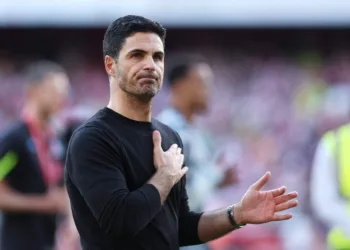The Indian football landscape faces unprecedented turmoil as Bengaluru FC becomes the latest casualty in the ongoing crisis surrounding the ISL 2025-26 season. In a shocking move that has sent ripples across the football community, the Blues have indefinitely suspended salaries for their first-team players and coaching staff, marking a dark chapter in Indian football’s commercial history. This desperate measure highlights the devastating impact of the unresolved Master Rights Agreement dispute between AIFF and FSDL.
Table of Contents
The Perfect Storm: How Bengaluru FC Reached This Breaking Point
The salary freeze marks latest sign of financial stress as clubs await clarity on 2025–26 season, with Bengaluru FC joining a growing list of troubled ISL franchises. The club’s official statement on August 4, 2025, confirmed what many had feared: “In view of the uncertainty surrounding the future of the Indian Super League season, Bengaluru Football Club has taken what is a very difficult decision of indefinitely suspending the salaries of players and staff belonging to the First Team.“

This unprecedented crisis stems from the unresolved Master Rights Agreement (MRA) between the All India Football Federation and Football Sports Development Limited. The Supreme Court’s pending decision on AIFF’s draft constitution case has created a legal standstill, preventing any new negotiations between the federation and FSDL, the commercial partner responsible for organizing the ISL.
The Domino Effect Across Indian Football
Bengaluru FC’s decision follows Odisha FC had suspended all player contracts in light of the same uncertainty, creating what sources describe as “a growing concern that this could trigger a domino effect” across the league. In June 2025, FSDL formally informed ISL clubs and the AIFF that the 2025–26 season was on hold due to unresolved contractual issues ahead of the expiry of the ‘Master Rights Agreement’ in December.
The impact extends far beyond individual clubs. The FSDL had earlier told the ISL club owners verbally that the next edition would not start until there was clarity on the MRA, effectively putting the entire league structure in jeopardy.
Financial Architecture Under Threat
The crisis has exposed fundamental weaknesses in Indian football’s financial model. Sources told ESPN that one of the key changes that had been discussed for the MRA was the ownership structure. The new plan mooted 60% equity ownership for the clubs themselves, 26% with FSDL and 14% with AIFF.
This proposed restructuring would represent a seismic shift from the current guaranteed-cash model to a profit-and-loss sharing arrangement, fundamentally altering how ISL clubs operate financially. The uncertainty surrounding these negotiations has left clubs unable to plan effectively for the upcoming season.
Timeline of Crisis: Key Events Leading to Current Impasse
| Date | Event | Impact |
|---|---|---|
| April 2025 | AIFF Executive Committee forms 8-member task force for MRA renewal discussions | Initial attempts to address contract renewal |
| June 2025 | FSDL officially informs clubs that ISL 2025-26 season is on hold | Season officially suspended |
| July 11, 2025 | FSDL announces 2025–26 season ‘put on hold’ owing to unresolved contractual issues | Formal confirmation of season suspension |
| July 2025 | Odisha FC suspend contracts amid ISL 2025–26 uncertainty | First major club casualty |
| August 4, 2025 | Bengaluru FC suspends July salary payments | Second major club affected |
| August 7, 2025 | AIFF confirmed that senior officials will meet with the CEOs of the eight concerned clubs in New Delhi | Emergency meeting scheduled |
The Broader Ecosystem Under Siege
The crisis extends beyond professional clubs to grassroots development. With academies inactive and club operations on hold, player development is being severely compromised. The national team is also affected, as India heads into the September and October FIFA windows without competitive domestic football.

The financial strain has created a cascading effect throughout Indian football’s infrastructure. AIFF is yet to receive any payments in the 2025–26 financial year from their commercial partner FSDL, further deepening the financial strain across the system.
Impact on ISL 2025-26 Season Structure
| Affected Area | Current Status | Implications |
|---|---|---|
| Season Start | Indefinitely postponed | No confirmed timeline for commencement |
| Club Operations | Suspended/Limited | Player contracts frozen, staff layoffs |
| Broadcasting Rights | Under review | Revenue streams disrupted |
| Sponsorship Deals | In limbo | Commercial partnerships at risk |
| Player Development | Severely compromised | National team preparation affected |
Club Financial Breakdown: ISL Teams Under Pressure
| Club | Status | Action Taken | Financial Impact |
|---|---|---|---|
| Bengaluru FC | Salaries suspended | Indefinite first-team salary freeze | ₹31,659 weekly wage bill affected |
| Odisha FC | Contracts suspended | All player contracts temporarily cancelled | Full squad impact |
| Other 12 Clubs | Monitoring situation | 8 clubs sent joint letter to AIFF | Varying levels of financial stress |
Legal and Administrative Complexities
The Supreme Court’s role in this crisis cannot be understated. Following a directive from the Supreme Court, the AIFF has been asked not to negotiate new terms of the MRA with (FSDL), the apex governing body’s commercial partner running the ISL, until a final judgment is delivered in the AIFF draft constitution case.
This legal deadlock has created an administrative nightmare where no party can move forward with confidence. The Master Rights Agreement, which governs the commercial relationship between AIFF and FSDL, expires in December 2025, creating additional time pressure for resolution.
The Human Cost: Players and Staff Bear the Brunt
Beyond the financial figures and legal complexities lies the human element of this crisis. Khel Now have learned that Bengaluru FC’s players were informed on August 4 that July salaries would be held for now, with the club assuring them that all dues will be cleared once the situation is resolved.
The psychological impact on players, coaching staff, and their families cannot be quantified. Many players have mortgages, family obligations, and financial commitments that depend on regular salary payments. The indefinite nature of the suspension adds to the uncertainty and stress.
Looking Ahead: Potential Scenarios and Solutions
The August 7 meeting between AIFF officials and club CEOs represents a critical juncture. Several potential outcomes could emerge:
Scenario 1: Expedited Legal Resolution If the Supreme Court fast-tracks its decision on the AIFF constitution case, it could clear the path for MRA negotiations.
Scenario 2: Interim Arrangement A temporary agreement might allow the season to proceed while long-term negotiations continue.
Scenario 3: Structural Overhaul Complete restructuring of the ISL’s commercial model could emerge from this crisis.
The stakes could not be higher for Indian football. AIFF President Kalyan Chaubey has assured that the Indian Super League will eventually resume, but has acknowledged that timelines are contingent on the Supreme Court’s ruling.
A Watershed Moment for Indian Football
Bengaluru FC’s salary suspension represents more than just a financial crisis—it’s a symptom of deeper structural issues plaguing Indian football. The club’s youth development programs remaining operational provides a silver lining, demonstrating their commitment to long-term football development despite short-term challenges.

The resolution of this crisis will likely reshape the entire landscape of Indian football. Whether it leads to a more sustainable financial model or triggers a broader collapse of the professional league structure remains to be seen. What’s certain is that decisive action is needed urgently to restore confidence and stability to Indian football.
As stakeholders await the crucial August 7 meeting, the future of not just Bengaluru FC, but the entire ISL 2025-26 season, hangs in the balance. The beautiful game in India faces its most challenging moment, requiring unprecedented cooperation between all parties to emerge stronger from this crisis.
Read More: Everton on Verge of £29M Breakthrough: Kiernan Dewsbury-Hall Deal Nears Completion
FAQs
Why has Bengaluru FC suspended player salaries?
Bengaluru FC suspended salaries due to uncertainty surrounding the ISL 2025-26 season caused by the unresolved Master Rights Agreement between AIFF and FSDL. The club cited lack of clarity about the league’s future as the primary reason for this difficult decision.
When will the ISL 2025-26 season begin?
The ISL 2025-26 season is currently on indefinite hold. FSDL has officially suspended the season until there’s clarity on the Master Rights Agreement renewal, which depends on the Supreme Court’s decision on AIFF’s constitution case.
Are other ISL clubs facing similar financial problems?
Yes, multiple clubs are affected. Odisha FC has already suspended player contracts, and eight ISL clubs have jointly written to AIFF President seeking urgent resolution. The crisis is expected to impact more clubs if the situation continues.
What is the Master Rights Agreement and why is it important?
The Master Rights Agreement (MRA) is the commercial contract between AIFF and Football Sports Development Limited (FSDL) that governs ISL operations. The current agreement expires in December 2025, and renewal negotiations are blocked due to Supreme Court restrictions on AIFF.
Will Bengaluru FC players eventually receive their salaries?
Bengaluru FC has assured players that all salary dues will be cleared once the ISL situation is resolved. However, the indefinite nature of the suspension means there’s no confirmed timeline for when payments will resume.








